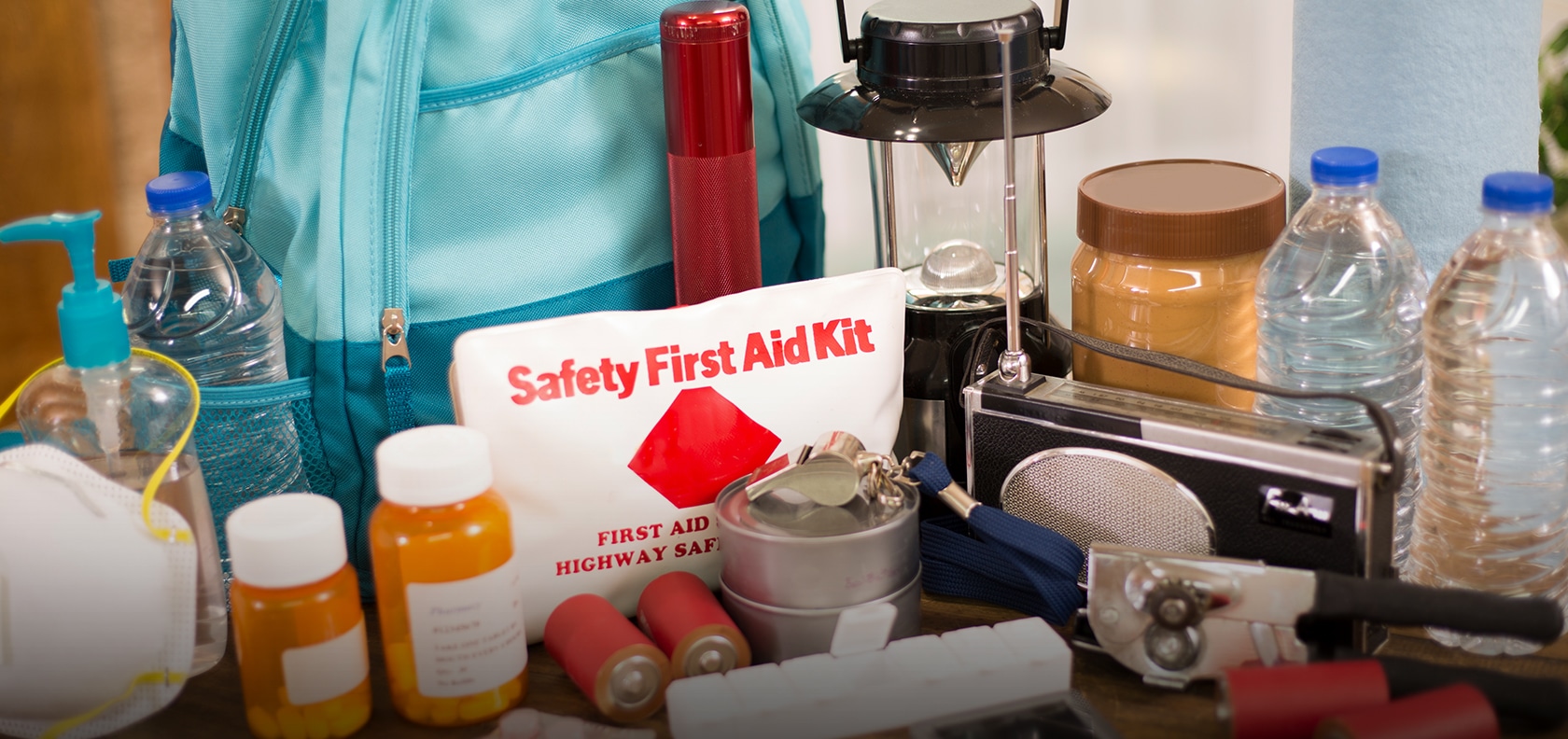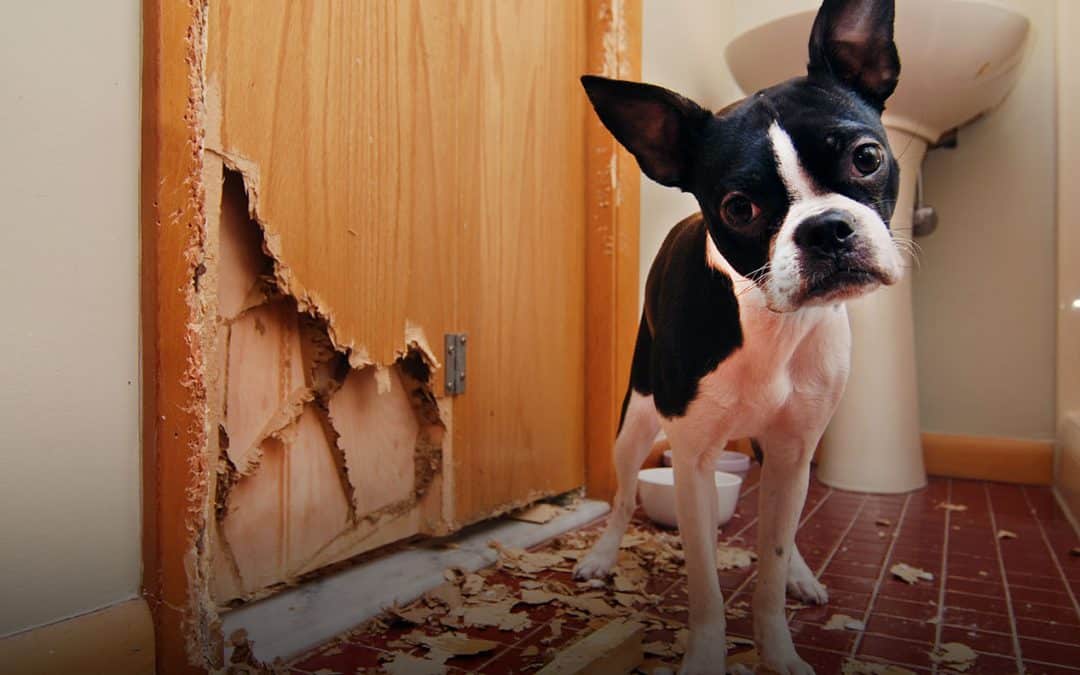Disasters and emergencies can happen at any time. That’s why during National Preparedness Month in September, Americans are reminded of the impact that potential disasters can have. Disasters typically include natural events such as avalanche, earthquake, extreme heat, flood, hurricane, lightning storms, hail, severe snowstorms, and others. Emergencies could include things like an active shooter, cyberattack, financial emergency, power outage, and more.
In the event of a natural or man-made disaster like contamination, leaks, or spills, the Federal Emergency Management Agency (FEMA) has several ways you can prepare:
Sign up for Alerts and Warnings
It’s a good idea to subscribe to local breaking news alerts on your mobile devices for the latest information in your area. You should also make sure the Government Alerts setting on your devices for “Emergency Alerts” and “Public Safety Alerts” are set to the on position.
Make a Plan
Because you don’t know if or when a disaster could strike, or if your family will even be together when it does, it’s important to have a plan. Know how everyone will contact one other and reconnect if separated and also establish a meeting place in the event someone gets separated.
Practice Emergency Drills
Once you decide on plan with your family, make sure to have practice drills to ensure everyone knows what to do in a potential emergency.
Know Evacuation Routes
Should you need to evacuate your home, plan how to do so safely and know where you will go ahead of time. Part of your plan should be to know where local shelters are, understand what alternative routes to take, and always have half a tank of gas in your vehicle. If you don’t have a car, make a plan on how you would be able to leave.
Build an Emergency Supply Kit
Whether you have to evacuate or if you are able to stay at home, make sure you build an emergency supply kit – one for the house and one for the car. FEMA recommends the following in your home emergency kit:
- Water
- Non-perishable food
- Manual can opener
- Flashlights
- Extra batteries
- First aid kit
- Dust mask (to help filter contaminated air)
- Plastic sheeting and duct tape (to shelter in place)
- Moist towelettes, garbage bags and plastic ties (for personal sanitation)
- Wrench or pliers (to turn off utilities)
The kit for your car should include things like jumper cables, flares, a blanket, cat litter or sand, maps, an ice scraper, a first aid kit, and a car cell phone charger.
Learn Basic Safety Skills
Learning basic safety skills like first aid and CPR can be a lifesaver. If you’re interested, your local American Red Cross will be able to provide you with locations of places for this type of training.
Learn to Use a Fire Extinguisher
The U.S. Fire Administration recommends having one up-to-date “ABC type” fire extinguisher in your household. However, only people who have been trained in a fire extinguisher’s proper use and maintenance should operate one. Your local fire department can provide this type of training.
Know How to Shut Off Water and Utilities
Natural and artificial disasters can cause fires, explosions, and gas leaks. In any case, you should know how and when to turn off utilities in your home to minimize any damage. Among the utilities you should know how to turn off are the natural gas, the shut-off valve for the main water line, and the electricity through the electrical circuit box.
Prepare Your Pets
Don’t forget to include your pets in your emergency preparedness plan!
- Make sure your pet is up-to-date with vaccinations (keep copies available in the event you need to go to a shelter)
- Make sure your pet has a collar, leash, and identification tag
- Identify pet-friendly lodging in case you need to evacuate
- Maintain a list of boarding facilities, animal shelters, and veterinarians who will take your pet in case you can’t bring them with you
- Have a 3-7 day supply of pet food and water on hand
- Store medications together in a waterproof container
- Keep a first aid kit on hand for your pet
- Keep sanitation products on hand like cat litter and trash bags
Make sure you also have a few of your pets favorite toys on hand to keep them happy.
Safeguard Documents
Before a disaster strikes, it’s a good idea to take an inventory of important household documents, valuables, and contacts. These are items that you would need to identify you and your family should your home be impacted by a disaster. FEMA put together an emergency checklist you can use.
Document and Insure Property
It’s also a good idea to make sure you understand your homeowner’s insurance policy and have the proper coverage in the event you need to repair, rebuild or replace anything. Some things you can do before a potential disaster are:
- Inventory your home or business (Taking photos and writing down descriptions and model numbers of items will help in the event of a loss)
- Keep vital records in a safe place
- Store insurance policy nearby
And make sure you have the right insurance coverage for your home with MAPFRE by talking to an independent agent in your state. If you’re not yet insured with us, you can always get a fast, free quote online in Massachusetts today to see how much you could save!



